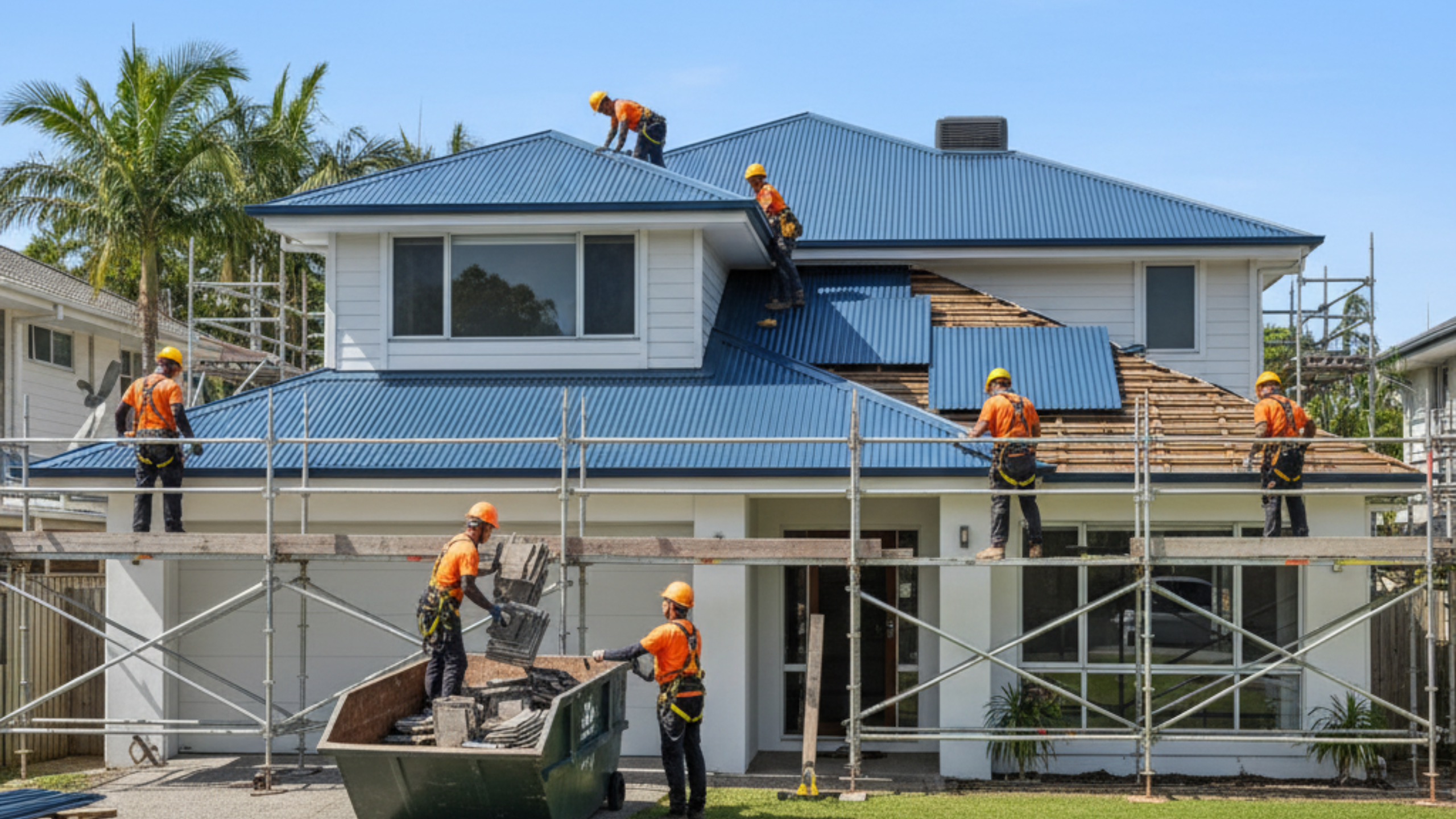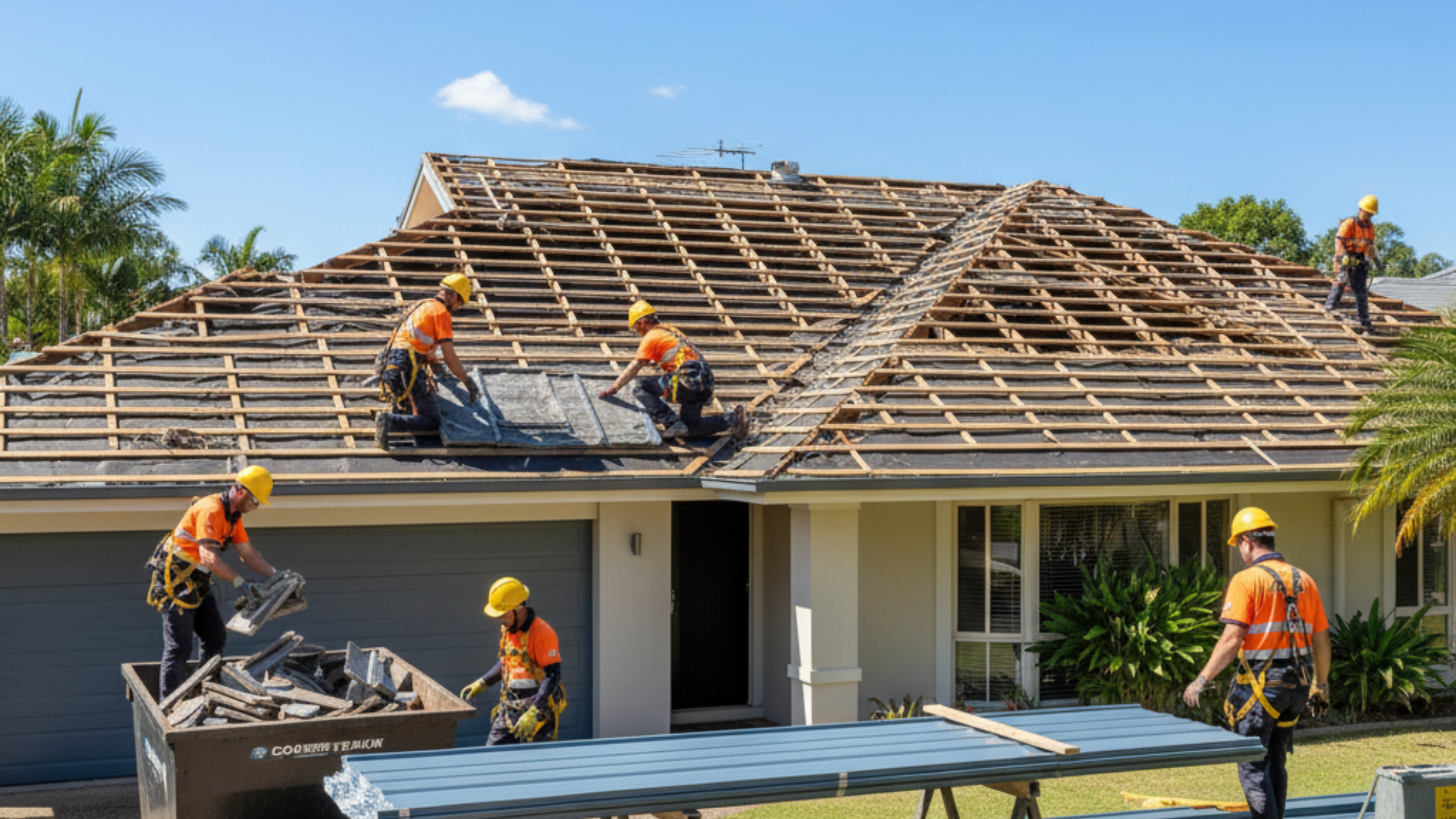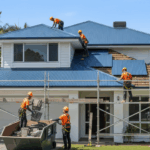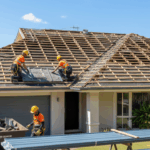Hiring a roofer can be a stressful process—your home’s safety, value, and protection are at stake. Whether you’re facing an emergency repair after a storm or planning a long-overdue roof replacement, finding a trustworthy contractor is crucial. Unfortunately, the roofing industry isn’t immune to scams and substandard workmanship. If you’re not careful, you could end up with a lighter wallet and a roof that’s still leaking.
To help homeowners make smart decisions, we’ve compiled the most common red flags that signal your roofer might not be legit. Keep reading to find out how to protect your home, your money, and your peace of mind.
They Ask for a Large Upfront Payment—Then Disappear
One of the most obvious red flags is when a contractor demands a hefty payment before any work begins. While a small deposit is standard practice, asking for 50% or more up front is a major warning sign. Scammers often take the money and vanish, leaving you without recourse.
At ZEN Roofing, we believe in fair and transparent payment schedules that align with the project’s progress. Any reputable contractor should be willing to work with you on a phased payment plan that protects both parties.
Their Business Has No Online Footprint or Reviews
In today’s digital age, a professional roofing company should have at least some online presence. A missing or bare-bones website, lack of Google reviews, or no social media activity could indicate the business is either brand new or operating under a fake name.
Do a quick online search. Check reviews on multiple platforms like Yelp, BBB, and Angi. Legitimate companies, like ZEN Roofing, are proud of their reputation and work hard to build credibility. A strong online presence not only shows transparency but also helps you verify their track record.
They Avoid Written Contracts or Give Vague Estimates
Verbal agreements don’t hold much weight when something goes wrong. If your roofer refuses to provide a written contract or dodges detailed estimates, you could be setting yourself up for trouble. These tactics make it easy for scammers to change the terms mid-project or claim misunderstandings.
A trustworthy roofing contractor will always provide a written contract that outlines the scope of work, materials, timelines, warranties, and costs. Make sure every detail is in writing before any work begins, and never accept vague language like “as needed” or “to be determined.”
They Can’t Provide Proof of License, Insurance, or Permits
One of the most effective ways to verify a roofer’s legitimacy is to ask for documentation. A real professional should have no problem showing you their contractor’s license, liability insurance, and, if required in your area, proof of permits for the job.
If they hesitate or provide suspicious paperwork, walk away. Hiring an unlicensed roofer could leave you liable for injuries on your property or for damage caused by poor workmanship. Permits are especially important—they ensure the work complies with local building codes and is subject to inspection.
They Show Up After a Storm, Uninvited and Overeager
Storm chasers are roofing companies—or individuals—who follow severe weather events, knocking on doors in affected neighborhoods and offering quick repairs. While not all of them are fraudulent, many use high-pressure tactics and poor materials to cash in fast.
Be wary of anyone who shows up unannounced offering a “limited time deal” or saying they “have extra materials from a job nearby.” Take your time to vet any company thoroughly. A legitimate roofer will provide identification, references, and time to review your options—without rushing you into a decision.
Their Prices Are Too Good to Be True—Because They Are
Everyone wants to save money, but extremely low quotes are usually a sign of hidden problems. Fly-by-night roofers often underbid to win jobs quickly, then cut corners with cheap materials, unskilled labor, or incomplete work.
Remember: roofing is an investment in your home’s structural integrity. Quality workmanship and durable materials cost more upfront but save you money in the long run. When comparing bids, look beyond price. Focus on reputation, experience, and what’s included in the quote.
They Pressure You to Decide On-the-Spot
Scammers know that pressure tactics can make homeowners act before they think. They may tell you the price is only good for “today only” or claim there’s a long waiting list unless you sign immediately. These are classic sales tricks designed to bypass your better judgment.
A trustworthy roofing company gives you the space and time to make an informed decision. They’ll provide a clear quote, answer your questions, and let you reach out when you’re ready. If someone’s pushing too hard, that’s your cue to walk away.
Their Vehicle and Branding Look Unprofessional or Generic
You can learn a lot about a company from its presentation. Reputable roofers usually have marked vehicles, branded uniforms, business cards, and professional communication. Scammers, on the other hand, might show up in unmarked vans or use magnetic signs that can be swapped out in a day.
While looks aren’t everything, a lack of consistent branding could indicate the contractor is trying to avoid being tracked—or doesn’t plan to stick around. Professionalism matters, even in the small details.
They Can’t—or Won’t—Show You Previous Work
One of the best ways to judge a roofer’s capability is by viewing their past work. If they can’t point you to a gallery of finished jobs, offer client testimonials, or provide references, that’s a major red flag.
Experienced roofers like ZEN Roofing take pride in their craftsmanship and will gladly connect you with past clients or showcase their portfolio. Transparency builds trust—and helps you feel confident in your choice.
They Change the Scope or Price Mid-Job With No Explanation
Sometimes, unexpected issues do come up during a roofing project. But a legitimate contractor will document these changes, explain them clearly, and adjust the cost or timeline accordingly—with your consent.
Shady contractors often increase prices halfway through the job without proper justification or switch materials without telling you. Protect yourself by including a clause in your contract that requires written approval for any change orders.
Conclusion: Protect Yourself and Your Home
A solid, well-built roof is one of the most important components of a safe home. Don’t let a dishonest contractor compromise that. By knowing what warning signs to look for, you can avoid costly mistakes and ensure you’re hiring a qualified, reliable roofer.
If you’re ever unsure, trust your gut and take time to verify credentials, references, and reviews. Working with a reputable company like ZEN Roofing ensures you get transparency, quality craftsmanship, and peace of mind from start to finish.
Ready to talk about your roofing needs? Reach out today for a free consultation—no pressure, just honest advice from experts who care.









